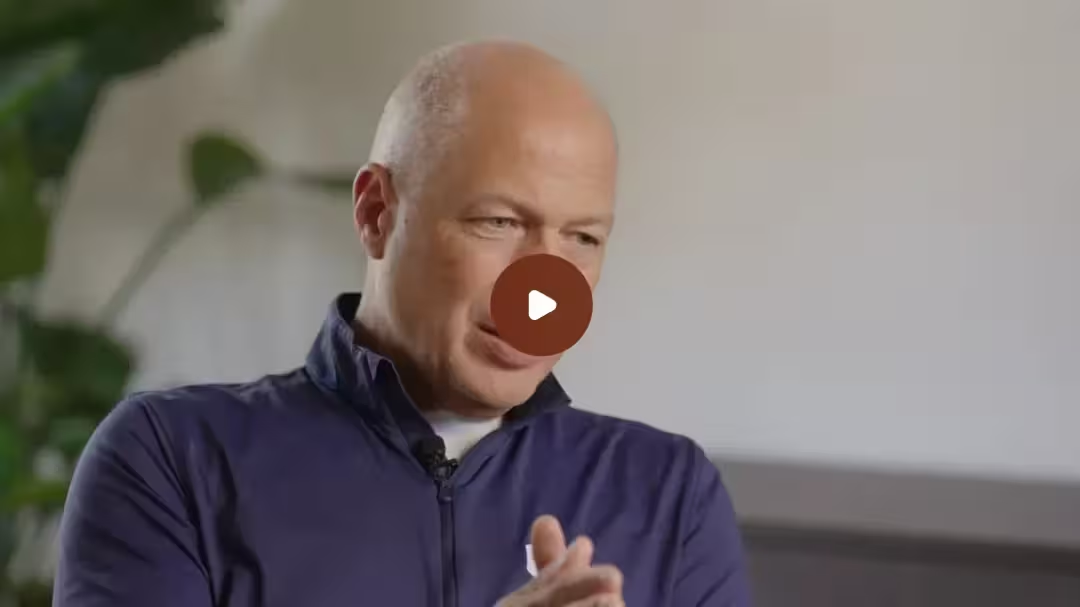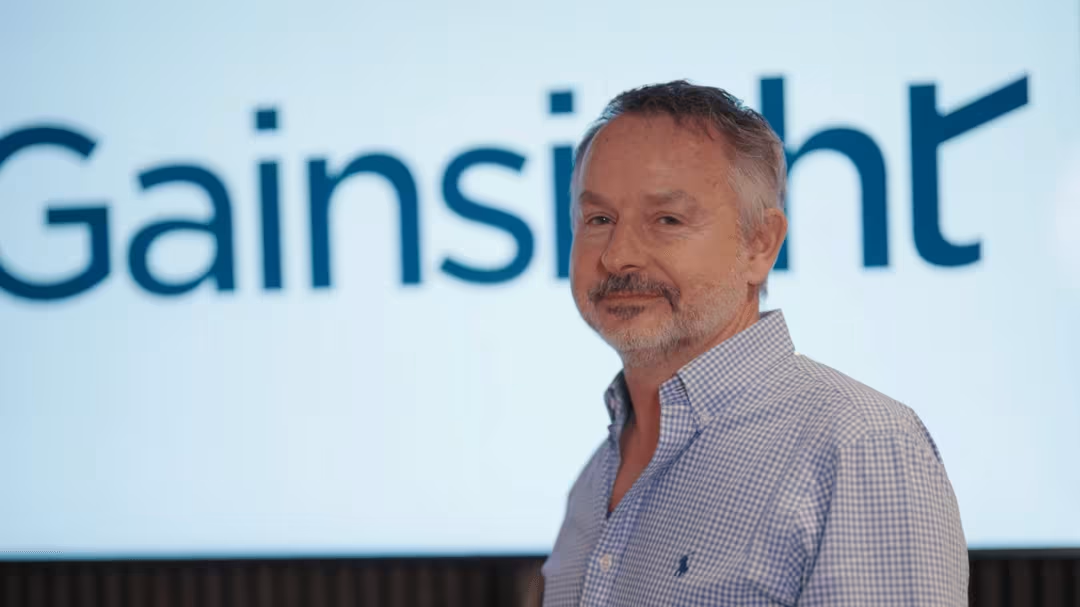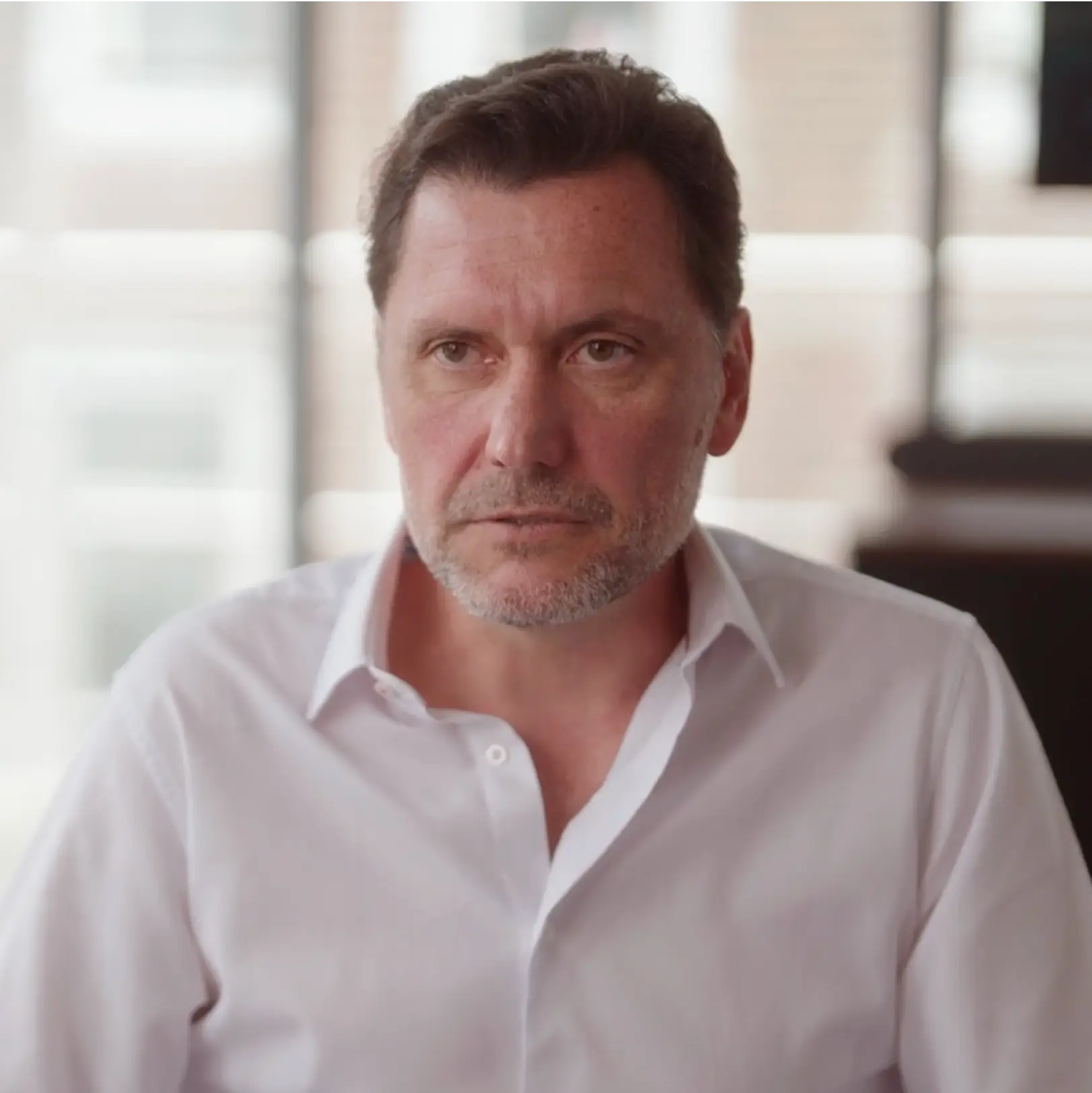The Interview
Kluster's Take
Tom spoke with Jason Rozenblat, Vice President of Strategic Accounts at CallRail. He explains his unique approach to leadership and communication.
Jason’s philosophy is to lead by example. He manages the team in the same way that he would like to be led. You need to put yourself in the shoes of the salesperson, empathy is key.
He is very careful of how messaging comes across. The delivery is intentional, it comes from a very specific place. Jason thinks about the people he’s worked with and worked for. Extracting all their best qualities and being mindful of any negative tendencies. Through these experiences, he’s created his own leadership style.
Jason looks for cerebral people who have a high IQ. He believes that you can teach sales acumen. Yet, a sense of self-awareness is important. He believes that monitoring doesn’t stop at the interview stage. You need to be looking at how reps progress through their role.
Transcription
I want to manage the team the same way that I would like to be managed or led. I put myself in the shoes of the salesperson. I'm very mindful of how my messaging comes across the delivery of all my approach. It is very intentional.
My sales leadership philosophy has always been one of the leading, um, by example, but also, um, I w I want to, I want the team to, I want to manage the team the same way that I would like to be managed or led. So I put myself in the shoes of the sales person, um, anyone that re that is in my organization.
And I always, I'm very mindful of how my messaging comes across. Uh, the delivery of all my approach. It is very intentional. Um, everything that I do is very intentional and not haphazard. I, every word I say, every every message I, I type out or deliver always has a very, um, intentional, uh, it comes from a very specific.
So I think back to people that I've worked with and worked for, and I've tried to extract all their best qualities and try to at least be aware of, uh, all their other negative qualities or things that I perceive to be negative. And, um, and I've kind of created this, this Frankenstein style of, uh, my own style, my own, my own philosophy of how to, how to lead, uh, based on all those experiences.
Um, and something else that I've done. And I started. About 12 years ago actually, um, is sharing my principles, my leadership principles, my management principles. I share them with the team. And every time I onboard a new, anytime we onboard new new hires, um, in my session where I'm like welcome to the sales team, um, and go through some slides, I, oh, it's like the third slide that I share.
I always share my principles. So I've got a list of principles that everybody knows. So that they understand more about me and how we do things here. Um, so there are, there, there is as little mystery as possible. I am very, very big on transparency and, um, and try to be as open book, uh, as, as open of a book as I possibly can so that the team doesn't feel like they have to walk on eggshells.
They know exactly what's going on. Um, I feel like that creates and fosters an environment where people are more comfortable, comfortable. Hmm. Okay. So things are highly considered, um, as far as your interactions go. Yes. Okay. You said something really interesting about that, right? Because when we look at tech really get high growth, um, we look at the chaos that we all love, but grapple with it can be easy.
Sometimes have a gut reaction concept. We feel the pressure. We feel the, the speed. Um, so on a personal level, How do you make sure you live and ascribe to those principles? You mentioned even with the craziness around us? Um, good question. I mean, I, I think people that say something and do something different, um, the, the hypocrisy there is, there's like a major flaw.
Um, so. The principles are important, not just for the team to know, but also to like be my guiding principles into how I do things. So, um, it's not as difficult as it sounds, uh, or it may seem, um, for me to really subscribe to my own principles and, and live my own principles. They're the ones that I, I came up with.
So, um, and I have a high level of self-awareness, um, um, I think that's one of my strong suits is having a sense of self-awareness and understanding like how, like what I like, what emotions I'm showing or what my tone is showing. Um, and I, I can absolutely wear my emotions on my sleeve, but if I'm doing that, I'm doing that for a reason.
Um, so I'm very, very self-aware and, um, and constantly reminded in the back of my mind. This is important. This is the team needs to see, like it's a, it's, it's a job. I think the, uh, you know, leadership is a job that you said it's a hobby as a full-time hobby. Um, the team is always looking at you. The team is always, um, evaluating how you respond to things, how you, um, how you handle certain situations, what you're saying, they're hanging on every word, literally every word they take things very little.
Um, or sometimes it completely misinterpret things. So you have to account for both of those. Um, so yeah, I'm very, I'm very, just constantly mindful of like what is being said and how it's being said, um, and how I'm acting for sure. Great, good. Really good to hear Jason, um, the self-awareness piece. When you look at sales and where it's perceived in the UK, it doesn't always have a positive perception.
Um, we, we know that's, you know, we, we know perhaps it should, but most people might not attribute self-awareness to a salesperson. They might describe a sales. Person's a very different thing. And I'm interested to hear what you think of. Benefits the positives, why people should include self-awareness and their leadership strategy, or even as an individual rep and sales and how that links as well to what people think of us.
Yeah. So, um, one of my favorite quotes and I actually have it, um, I'm staring right at it. It's a picture of Reed Hastings, the CEO of Netflix, uh, where he's saying, he says, do not tolerate brilliant jerks. The cost of teamwork is too high. Um, I've. I mean, I've had scenarios where I've had people on my team who were top performers, who did not have that sense of self-awareness who were, um, who were toxic or disruptive to the rest of the group in some way, shape or form, whether it was something they said or did, or, or it was, uh, uh, you know, a series of things that they say or do, um, that, you know, one person is not bigger than the team.
Um, that, you know, I think that the way that I hire, I look for a cerebral people with high IQ. Um, I prefer high IQ over IQ when it comes to sales skills, I think I can teach you sales skills and you could develop your sales acumen. Um, it's just like any other topic or any other thing that you could learn and study, but.
Learning how to be a good person or having that sense of self-awareness. I mean, some people are just screwed in that department. Um, they're, they're just sort of that's the way they are and that's it. So, um, it's something that I am very, very, very cognizant of during the interview process and, and the types of people that I add to the team.
Yeah. And I want to ask about that process then EKU. Um, not always as easy. We now is IQ or acumen. So what he found to be really successful there and how do you monitor that as the person is hired and onboarded and progresses through their role? Right? Because it doesn't just stop at the interview stage.
Yeah. I, um, I've, I've done it a lot of different things. Uh, you know, w so what's interesting is right now, in my interview process, I have a couple roles that I'm hiring for, and I am very, very involved in the process. Um, even though I'm very busy as a VP sales of an organization like that, and we're scaling and we're doing all these different things.
I consider this to be my number one priority, making sure that we're hiring the right people. So I'm doing all these phone screens. I've done three today, um, for, you know, entry-level roles and on those conversations, I'm not talking about. Your experience, I'm not talking about like, tell me a time that you did, like, it's not a professional interview in that sense.
We're just talking how's your day going? Thank you so much for taking the time to chat. How'd you hear about us? Um, you know, what are you looking for? What's going on? Like, tell me a little bit about, about you, but not to, and then like the, the conversation just sort of starts to fold, uh, unfold rather. Um, and you start to get a sense for.
How this person thinks and talks and how they react to different questions I ask. And I may throw like a, like a random question out, um, you know, just like try to keep kind of catch them on their toes a little bit, not to trick them, but just to kinda see how they react to certain things. Um, so that's a good way for me to, to uncover that.
And then there was some of the more traditional questions that you might be able to ask in the interview process. Like, have you have your. And tell me about a time that you had, um, you know, a negative interaction with somebody at work or one of your managers, like what happened there? How did you handle it?
Something to that effect? Um, those are, those are like the more tried and true methods of being able to uncover that. Um, and right now I'm going through a process where, uh, I have a co of a culture that we promote from within and, um, There is a very talented account executive, uh, who has expressed interest and promise to, uh, for express interest in becoming a team lead.
And then ultimately, you know, a manager at some point. Um, so I've started to create these little mini assignments and testing him and seeing what he's capable of, um, and coaching him through that and his ability to have a. Overcome this like this visceral reaction of like, I hate how we do this. Like, this is terrible.
This is causing problems to make, to taking a more pragmatic approach. And I'm thinking about it very, very carefully and strategically and, and his ability to have caught himself and realize like, yeah, this is wildly unproductive for me to just complain about things. Um, and instead think about it from a constructive way and approach it from a constructive way and a more strategic fashion.
Um, he's like he, that to me means that he scores very high on his, on his IQ, um, and his ability to tone it down. Whereas other people are just incredibly. Like, they're just, they just speak what's on their mind. And they don't think about how to, I don't think about their audience. They don't think about how it's perceived.
Um, like an imagine, imagine like a, like someone in politics or an attorney just going into a courtroom or into, you know, into parliament and just complaining about stuff without any sort of evidence or everything's just anecdotal or making, you know, the perception that they're making a mountains out of molehills.
You know that that's wildly unproductive. Um, in fact, my first principle that I share with the team, and this is something I learned working at a startup in New York city in, um, in the mid two thousands, um, from the CEO of the company is you need to be a problem solver, not a problem spotter. And I talk about that all the time.
If you are a problem solver, as opposed to problem spotter, that to me tells me that you've got a fairly high level of. Um, that instead of just whining and complaining about things, you're actually taking a different approach to solving the problem. Okay. So being cerebral, isn't just the value you follow yourself.
It's also one that you coach on and that you inspire and people. Yeah, the scale things interesting, right? Because it sounds like you have a really close relationships with your reps. You understand them on a deeper motive level and they have the same relationship with you. Um, but sales, key teams scale, they get bigger.
We have less contact time with reps. So how are you approaching that as you folks grow and expand? I've dealt with that. Um, quite a bit in my career, having worked at, uh, you know, companies that scaled quickly. Um, I think that a lot of that has to do with, um, making yourself available to the team, um, setting, setting parameters and guidelines for what that.
Um, I think again, going back to the, be a problem solver, not a problem spot, or I don't want people to just come to me and complain about things. Um, but having that, that open door policy where reps feel like they can approach me, um, you know, if they have, you know, whether it be in the, in the context of like here I have office hours in a, in like an open invite through Calendly for a 15 minute, like skip level one-on-one whenever anybody wants.
We do, you know, since everybody's been remote, since we've been remote since March of 2020, um, every, every couple of weeks, every two weeks, we all got together on zoom and we all just like, I lead a call with the entire team and we just go around and we don't talk about work at all. We just say like, how has the week what's going on this weekend?
Any big plans? And like people bring their kids or pets or whatever. Um, so I try to make myself as available as possible. Um, But beyond that, like some of the other principles and this leads to it is, you know, the concept of like being vulnerable and being transparent. Um, I want people to have my, I want my team to have faith in me and the decisions that I make and trust that I'm making the right decisions.
But I also want to explain to them why we're doing certain things. And I also want to tell them when I'm making a mistake and, and, and, you know, like I'm big on the concept of. And this is such a simple theory, but it's so profound, you win or you learn. And that is, that is very powerful because it eliminates the concept of, of losing in theory, right?
Like you either, whatever the scenario is, and it could be something super small or something large, it could be anything, it could be personal. Um, but you either won or you're learning from the experience and. And I'm, I'm vulnerable with the team. And I tell them like, Hey, we tried this thing. It didn't work.
Um, that was on me, like my fault. We're going to fix it. Here's what we're doing. So, um, that's how I've been able to maintain, regardless of the team size as being very, very public with like those emotions and feelings and thoughts and, and letting them know where I'm coming from. Otherwise, they feel like they're just worker bees.


.svg)
.svg)
.svg)
.svg)










